- Home
- Brian Garfield
Relentless Page 2
Relentless Read online
Page 2
“With all that armor plate and all them guards?”
“If they hit the bank how are they going to get out of here? You want to relax, Jasper.”
“Maybe. I es-still think we ought to put in some cameras and bulletproof plexiglass panes for them tellers to work behind.”
“You’ve got a good alarm system and a big gun on your belt. But I’ll tell you what, Jasper, if you really want to keep the bad guys scared off maybe you ought to get yourself a feathered headdress and a tomahawk.”
3
He stopped just outside the cafe and looked at the sky: he could smell a change in weather coming, a thin scent of winter in the air. The sky was clear cobalt, only a few cloud banks to the west, but there was a sharp chill to it and those clouds were advancing fast. Snowstorms sometimes hit the high plateau as early as the end of September and here it was the fourth Friday in October. It was a sudden country.
He went inside. The cafe was filled with the bass thumpings of Johnny Cash on the jukebox. “Custer’s Last Fight” on the wall and denim buttocks arrayed in a row along the counter stools; high-top boots and cowboy hats. Ranch fresh eggs and chicken-fried steaks and the smell of fried grease. Over in a booth Buck Stevens was consuming a hamburger with lots of raw onions. Stevens was a wholesome kid with a square sturdy face and bright china-blue eyes that had an antic way of bobbing about, seldom missing much. He was going to make a good cop.
Jace Cunningham was there in the same booth, wolfing a sandwich, keeping his hat on while he ate. When Watchman reached the table Cunningham slid over into the corner without missing a mouthful and said something muffled that Watchman took to be an invitation to sit.
“How’s it going, Jace?” He sat down and planted his elbows on the plastic table top.
Cunningham wore a business suit with an elaborate brazen badge pinned to the lapel. It looked like the kind of badge you could buy in the toy department at Woolworth’s; it said “City Constable.” Cunningham had a long spare body and a solemn little face. His skin was as freckled as knockwurst. He had been born fifty-three years old-dependable, proper, sober, de-liberate. He was employed by the copper company as chief of police in San Miguel and he was one-fourth of its manpower.
The buxom blonde waitress came over and propped her left elbow into her waist to write in her pad. “Looks like a policemen’s convention here. What’ll it be, Trooper?”
Watchman studied the chalked menu on the blackboard above the counter. “How’s the chili today?”
“I don’t know. I ain’t tried it.”
Stevens was watching her and she was aware of his attention; she cocked her hip slightly.
“Maybe you ought to try it,” Stevens said. “Might put hair on your chest.”
“In a minute,” she said in a tone laced with scorn, “I’m leaving. I can’t take this police brutality.”
Watchman said chili and coffee. When the girl went away, with a little extra swing in her walk because she knew Stevens was watching, Cunningham said, “They got snow over to Nevada last night. Like as not we’ll catch some tonight. You two planning to stay up here or go on down to Flag?”
“Hadn’t thought about it,” Watchman said.
“Maybe you ought to. You don’t want to get caught up in them high passes.”
The diamond ring in its little box made a hard knot in his pocket and he said, “I guess we’ll start back for Flag, then. All right with you, Buck?”
There was a rowdy flavor to the rookie’s grin. “Snow hell. You just want to get back to Lisa and cozy up in Flag till it blows over. Snowstorm? Hah-red man speak with forked tongue.”
Cunningham, with his mouth full, rolled his eyes from face to face to see how Watchman would take that. Cunningham had always been a little uneasy with him: Cunningham was an old wrangler from Texas. Watchman had been down in West Texas once years ago and he hadn’t stayed any longer than he’d had to: in the filling station they’d had three sets of toilets- Whites, Coloreds, Mexicans — and evidently if you were a native American you had to practice extreme continence in those parts.
Watchman slid the ring case out of his pocket and pushed it across the table. Stevens clicked it open and his mouth formed a circle. “Jesus. I’ve seen Eskimos living on smaller rocks than this. What’d you pay for it-twenty-four dollars in glass beads and red cloth?”
Cunningham squirmed and addressed himself to the remains of his sandwich.
Watchman laughed softly and retrieved the ring and Stevens said, “You figure to give it to her tonight?”
“I had it in mind.” All the months of counting up the back pay he’d saved: this night was going to be sweet. He could picture the soft shine of joy on her face.
The waitress delivered Watchman’s chili and when she turned away Stevens reached for her wrist. “Honey, what’s your name?”
“Francine. What’s yours?”
“Buck. Buck Stevens.” He said it with an aw-shucks tilt of his head and the blond cowlick fell over his eyebrow and Watchman tried to repress a grin. “You weren’t by any chance looking for a lift into Flagstaff this afternoon, Francine?”
“Now if I was, what makes you think I’d go with you?”
Stevens brightened. “How about it, then?”
“Nuts.” She reached over to pick up Cunningham’s plate and the white dress stretched tight over her ample breasts. “I’ve got work to do.” She straightened and gave him an arch look. “But come back when you’re big enough.” She even looked like Mae West.
“Big enough where?” Stevens riposted softly; his eyes began to flash with lecherous hilarity.
When Francine laughed her eyes wrinkled up until they were almost shut. “Y’all come back, hear? I’ll be around.” And flounced away.
Watchman laughed till his stomach hurt. It was a good day for laughter. A fine day, with Lisa waiting at the end of it.
Cunningham got up awkwardly and Watchman let him out. “You boys look out for that snow, now,” the constable said, and went tottering over to the cashier’s register on his cowboy boots. He hadn’t even cracked a smile the whole time. You could always depend on white men to be inscrutable.
“Sour old fart,” Stevens observed.
“I’ll tell you, son, comes, the red revolution and there’ll be some changes made. We’re going to guide the white man in the proper enjoyment of life. We’re going to educate his funny bone so he can rise up to our level of civilization from his unhappy savage state. And when that’s done the Bureau of White Folks’ Affairs will sign over full citizenship rights to the white man for as long as the sun shall rise and the rivers flow to the sea.”
“You tell ’em, kemo sabe.”
4
The clouds to the west didn’t look sinister yet but up here it could hit very fast. They cleared the edge of town and Watchman put the cruiser up to sixty on the road heading east toward the mountains. A light plane went by overhead at four or five thousand feet with a buzzing sound that irritated Watchman: there were several fly-by-night outfits over on the Utah and Nevada slopes which made a business out of taking rich poachers into the Arizona high country at night to hunt antelope and whitetail from slow, low-flying planes equipped with enormous floodlamps that could pin an animal, dazzle it, paralyze it until the arrogant “sportsmen” had made their kill. Then the guide outfit would send in a flunky in a pickup truck to collect the carcass and if the pickup got intercepted the driver would claim he had collided with the animal and killed it by accident. Game wardens seldom had time or facilities to perform autopsies and most of the time the flying poachers got away with it.
This plane didn’t look like a hunter; more like a business executive’s charter job. One of those Twin Apaches that seated seven or eight. It went over with a harsh drone, flying west toward the clouds, probably headed for Las Vegas or Reno.
“They’re likely to run into some turbulence, heading that way,” Stevens observed.
“Those guys usually know what they’re doing.
” Watchman had a secret admiration for pilots. He’d only been up in airplanes a few times, mostly in big liners, but every time he happened to drive past a private airport he would run his eyes over the little planes and start to think about maybe investing a little money in flying lessons and getting himself a license. The Highway Patrol had a few planes and maybe…
It was idle fantasy; nothing was likely to come of it but daydreams. Basically he was a groundling, rooted in the earth. In the Army after high school he’d been MOS Infantry all the way-that had been in ’fifty-seven and ’fifty-eight-and they’d flown him all the way from Fort Bliss to West Berlin during the crisis but there’d been no action and when he had returned to the States they had refused his application for transfer into the Military Police, so he’d let his enlistment expire and come back to school on the GI Bill-two years at the State College in Flagstaff and then a rookie beat with the Highway Patrol. At thirty-three he had been a cop almost exactly one-third of his lifetime. To show for it, he had three commendations, two citations for bravery, and five written reprimands.
Just the same it was a long way up for a Dine, which was the Navajo word for Navajo (Navajo being an Apache word that meant “enemy”). He had been born in 1938 in one of four mud-brush hogans that belonged to the cluster of his grandmother’s family-grandmother and married daughters and their children-just about dead center on the sixteen-million-acre Window Rock Reservation. When he was a kid they’d had to carry water up to the hogan in a bucket from a well a quarter mile away and it was a twenty-five-mile walk to the trading post where his father worked as an Agency cop. You never got out of debt to the white trader. But you were taught never to complain. In those days there hadn’t been any Red Power movements but Watchman’s father had been a man of strength who had refused to be degraded by charity or the patronizing paternalism of the Bureau of Indian Affairs. The old man had had one thing nobody had ever taken away from him and that was his sense of humor; and that was Sam Watchman’s legacy. No point in fighting the Indian wars all over again; the thing to do was get along with folks, have a few laughs, love a good woman and take pride in the dignity of your work. On the college psychological tests there had been a question, “How would you characterize yourself?” and of the five choices for answers Watchman had picked “Easygoing.” He just didn’t understand folks who made one big crisis out of life.
They passed Holcombe’s roadside oasis-half a dozen sycamores, a dusty trailer park, a decrepit old motel with five “modern cabins” and Holcombe’s store and filling station with its untrue sign, “Last Gas Before Desert.” Watchman got comfortable in the seat for the long afternoon’s drive ahead, with his wrist hooked over the top of the steering wheel and his left elbow poking out the window, and then the radio coughed and sputtered and Buck Stevens reached down to turn up the volume against the noise of the wind.
“… Repeat, we have a Code Ten Thirteen from San Miguel. Car Niner Zero, acknowledge. Car Niner Zero.”
Watchman plucked the mike off its sprocket and took his foot off the gas while he talked into the microphone. “Niner Zero to Dispatch, Niner Zero to Dispatch. Go ahead-what’s the ruckus?”
“We have a Ten Thirteen from San Miguel, Officer Needs Assistance. Robbery in progress-repeat, robbery in progress. That you, Sam?”
“Aeah, Ernie, go ahead.” He had the brakes on now to swing wide for a U-turn.
Buck Stevens sat up higher in his seat. “What the fuck?…” The shape of his blue eyes was changing.
The rear wheels slewed in the gravel as Watchman hung the end-for-end turn on the shoulders and started back the way they had come. The radio kept coughing: “It looks like the San Miguel bank, Sam.”
Watchman’s eye flicked the passing milepost-twenty-three more miles into town. Stevens was switching on the flasher. Watchman cranked his window closed to hear the two-way’s speaker. The needle climbed up past the eighty m.p.h. mark.
“… coming in on the emergency shortwave band. Their teletype lines must be down and we can’t get through on the phone. It could be some ham operator pulling a hoax but they’ve got the right signal codes. It keeps fading in and out-pretty weak. Something about robbery in progress, officer needs assistance, maybe the bank. It’s coming in garbled-possibly one of Cunningham’s company cops on the key.”
“We’re on our way.”
“How far out are you?”
“Be there in fourteer minutes.” Watchman saw Buck Stevens’ hand reach the jolting dashboard and grip its edge. “We’re east of town. You’d better put a stopper on the road west.”
“Affirmative, Niner Zero. Two Nevada patrol cars coming east from the state line. They’ll cross the line in seven minutes.”
They worked like that up here, operating vaguely under” interstate “hot pursuit” statutes; in fact a Utah sheriff’s office regularly covered the northwest corner of Arizona’s Mohave County. It had to be done that way. Watchman’s was the only Arizona police car in fifteen thousand square miles.
Even so it would take the two Nevada cars an hour to reach San Miguel.
Watchman reached up for the siren switch. “God knows what we’ll run into-better get armed.”
Buck Stevens was pale. He twisted in the seat to get at the rack inside the back door that held the riot shotgun and rifle; dragged both weapons over the back of the seat and held them across his knees. In the corner of his vision Watchman saw the rookie’s Adam’s apple shift up and down.
They whipped past the city-limit sign and several cars and pickups crowded over close to the curb to let them by. Watchman brought the speed down and came into the last bend at forty; the cruiser swayed on its springs, tires wailing, the ten-foot spring-mounted radio antenna lashing violently from its mountings on the rear bumper.
A small crowd stood gaping outside the bank and Watchman slid in at the curb, switched off the siren but left the flasher on. “Never mind the guns.” People in crowds could be stupid but not that stupid; if there was any chance of shooting here these people would have been behind cover. Conclusion: if the bank had been robbed, the robbers had already fled.
The crowd was a tight knot around the door and when Watchman and Stevens came across the curb the crowd parted like the waters of the Red Sea. A barefoot kid in frayed jeans stood open-mouthed with his nose pressed to the window. Watchman went inside.
People were clustered inside the bank. Most of the men had no trousers on.
There was a little group crouched around an object on the floor by the rear teller’s cage.
There was a lot of talking, everybody shouting at one another and at Watchman. He lifted his voice; “All right, let’s hold it down.”
The racket subsided from clamor to mutter. A thin shape straightened and detached itself from the knot of people by the teller’s cage-Jace Cunningham, looking greenish and soft around the mouth. He came forward quickly and showed his consternation by shaking his head grievously and letting his hand dangle limply at the wrist, shaking it back and forth as if wearily drying his fingertips. “Jesus H. Christ.” He had his pants on.
“What happened, Jace?”
“I ain’t sure. I wasn’t here-I just got here. But somebody hit the bank, a bunch of them. They got the cash, pretty close to a million. And that over there…”
Past the crowded people Watchman could see a pair of boots protruding and he heard Cunningham say, “They killed Jasper Simalie, Sam.”
5
Watchman gripped Buck Stevens by the arm. “They didn’t pass by us going out so they’ve gone out the other way-west on 793. Get on the radio and report. Tell those Nevada patrol cars to stop and search anything that moves on that road. On the run, now.”
When Stevens sprinted past him he pushed Jace Cunningham aside with the heel of his hand and shoved into the crowd around Jasper Simalie. He recognized Doctor Jamieson-a gaunt man with a hollow-cheeked death’s head and big yellow teeth, sparrow-chested and frail. The doctor was breathing like a teakettle. He looked
up at Watchman and shook his head.
Jasper lay on his face. There was a great deal of blood on the floor.
“Shotguns,” the doctor said through his teeth. “They weren’t pistols, they were shotguns. The poor son of a bitch never had a prayer.”
A pudgy man with pink hands was waiting, licking his lips with a pink tongue, when Watchman straightened and turned. Cunningham said, “This here’s Mr. Whipple. He owns the bank.”
“Not really,” the pudgy man said. “I’m the manager-I work for the San Miguel Copper Company and I’m supposed to-”
“Were you here?”
“What’s that?” Whipple’s eyelids fluttered like semaphores.
“When this happened. Were you here? Can you tell me what happened?”
“I suppose so. It’s all so unreal, you know?”
The doctor came by, lugging his bag. “I’ve got to have a look at those armored-car guards. You coming, Jace?”
Watchman turned with an abrupt snap of his wide shoulders. “What about the guards?”
Cunningham flapped a bony hand reassuringly. “Don’t worry about it. They’re okay. They got sprayed with something and need gettin’ their eyes washed out, that’s all.”
The doctor said, “I think it was chemical Mace,” and went.
6
It was the biggest bank haul in the history of Arizona.
Watchman absorbed the facts quickly, piecing them together from the disjointed reportage of Whipple and Cunningham and two of the tellers he questioned. The tellers stood awkwardly, trying to ignore the fact that they were standing there in shirts, neckties, and underdrawers.
That was because the bandits had relieved them not only of the better part of a million in cash-Terrell, the head cashier, estimated $930,000-but of their pants as well, to discourage them from venturing out in pursuit.

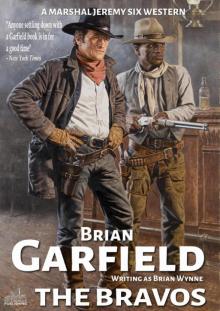 Marshal Jeremy Six #3
Marshal Jeremy Six #3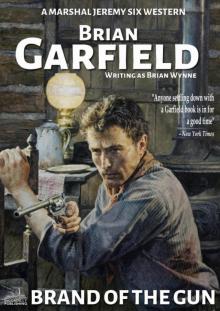 Marshal Jeremy Six #6
Marshal Jeremy Six #6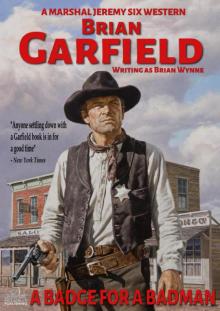 Marshal Jeremy Six #5
Marshal Jeremy Six #5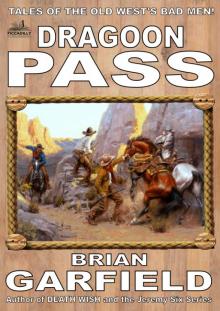 The Outlaws 2
The Outlaws 2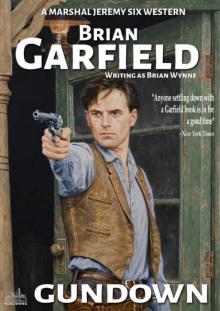 Marshal Jeremy Six #7
Marshal Jeremy Six #7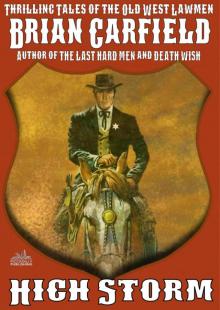 The Lawbringers 4
The Lawbringers 4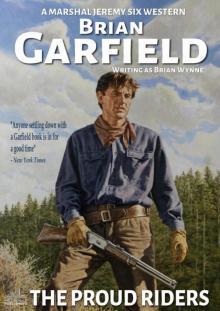 Marshal Jeremy Six #4 the Proud Riders
Marshal Jeremy Six #4 the Proud Riders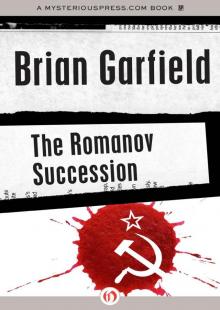 The Romanov succession
The Romanov succession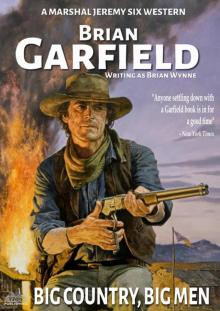 Marshal Jeremy Six #8
Marshal Jeremy Six #8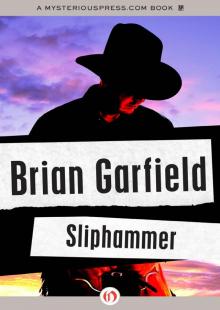 Sliphammer
Sliphammer Line of Succession
Line of Succession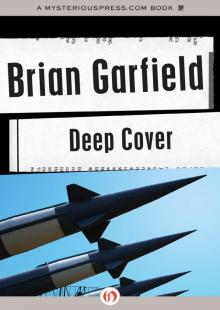 Deep Cover
Deep Cover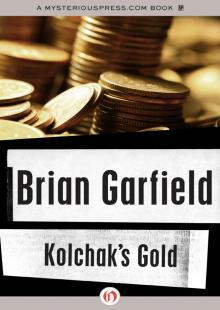 Kolchak's Gold
Kolchak's Gold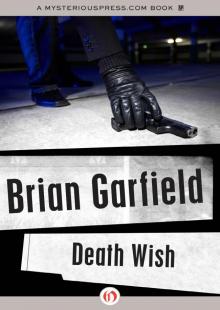 Death Wish
Death Wish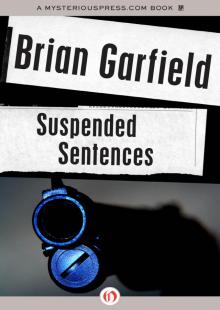 Suspended Sentences
Suspended Sentences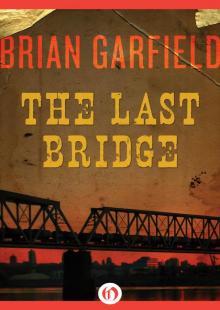 The Last Bridge
The Last Bridge Relentless
Relentless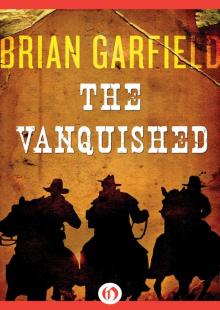 The Vanquished
The Vanquished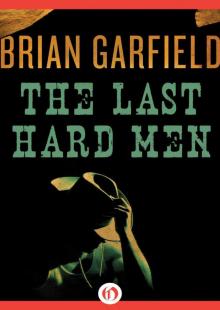 The Last Hard Men
The Last Hard Men Hit and The Marksman
Hit and The Marksman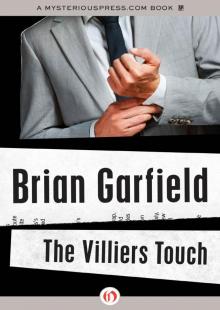 Villiers Touch
Villiers Touch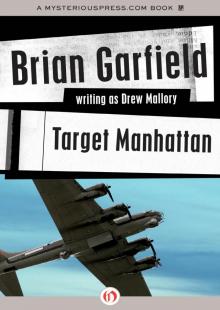 Target Manhattan
Target Manhattan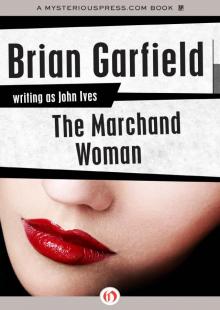 Marchand Woman
Marchand Woman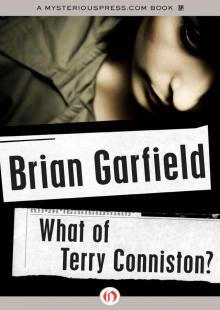 What of Terry Conniston?
What of Terry Conniston?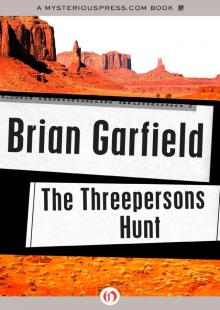 Threepersons Hunt
Threepersons Hunt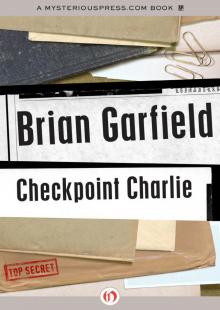 Checkpoint Charlie
Checkpoint Charlie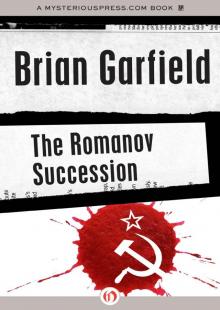 Romanov Succession
Romanov Succession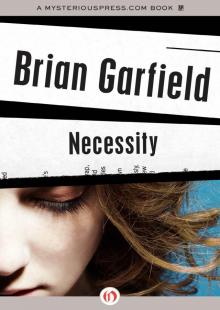 Necessity
Necessity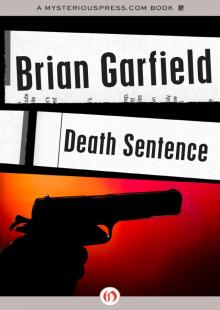 Death Sentence
Death Sentence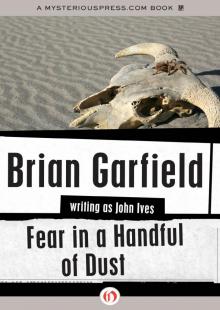 Fear in a Handful of Dust
Fear in a Handful of Dust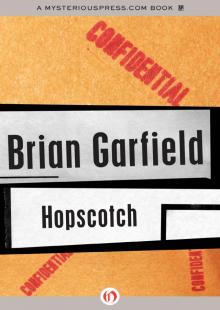 Hopscotch
Hopscotch